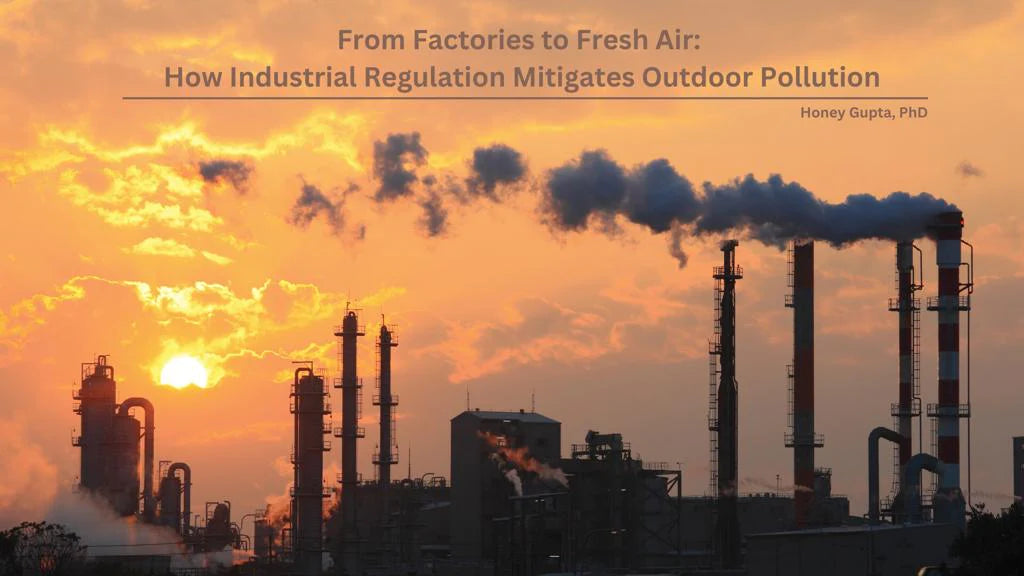Introduction
Industries, pivotal for economic growth, often significantly impact the environment through pollution. This article explores the pivotal role of regulations in curbing industrial pollution, aiming for cleaner environments amidst historical industrial impacts.
As industries contribute to outdoor pollution, understanding these sources is crucial. Emissions such as airborne particulate matter and chemicals significantly affect air quality and public health, emphasizing the necessity of addressing these pollutants effectively.
Understanding Industrial Pollution
Industries across manufacturing, energy, and transportation significantly contribute to outdoor pollution. Emissions contain various pollutants, causing health hazards and environmental degradation. These emissions have long affected air quality and contributed to environmental concerns.
Evolution of Industrial Regulations
Regulations have evolved significantly to address environmental concerns. From initial oversight to stringent regulations, international agreements like the Kyoto Protocol and the Paris Agreement have influenced global environmental policies, setting emission reduction targets and fostering sustainable practices.
Impact of Regulations on Pollution Reduction
Implementation of stringent regulations showcases positive outcomes with reduced emissions and improved air quality. However, challenges persist, including compliance issues and balancing economic growth with environmental concerns, demonstrating the need for continued improvements.
Technological Advancements and Compliance
Technological innovations have been crucial in meeting regulatory standards. Adoption of cleaner technologies and sustainable practices has resulted in reduced emissions and enhanced environmental sustainability. Innovative technologies like renewable energy sources and advanced filtration systems significantly contribute to emission reduction.
Hari Hats, a pioneering wearable technology by Honeyfeinated, exemplifies innovative approaches to combat air pollution. These portable air purifiers integrate air filtration seamlessly into baseball hats, offering individuals filtered air on the go. Discover more about Hari Hats.
Global Cooperation and Policy Advocacy
International cooperation is pivotal in addressing industrial pollution. Collaboration among nations fosters knowledge exchange and strengthens global environmental protection efforts. The role of advocacy by environmental activists, NGOs, and concerned citizens is instrumental in advocating for stricter regulations.
Future Directions and Sustainability
Future regulatory frameworks focus on sustainability. Integrating renewable energy, promoting circular economies, and advocating sustainable manufacturing are pivotal. This shift aims to balance industrial development with environmental preservation.
Conclusion
Industrial regulations play a critical role in combating outdoor pollution. However, ongoing improvements, stricter enforcement, and collaborative efforts are vital for achieving cleaner air globally. Honeyfeinated acknowledges the significance of innovative solutions like Hari Hats in promoting cleaner environments amidst industrial challenges.
Also Read
